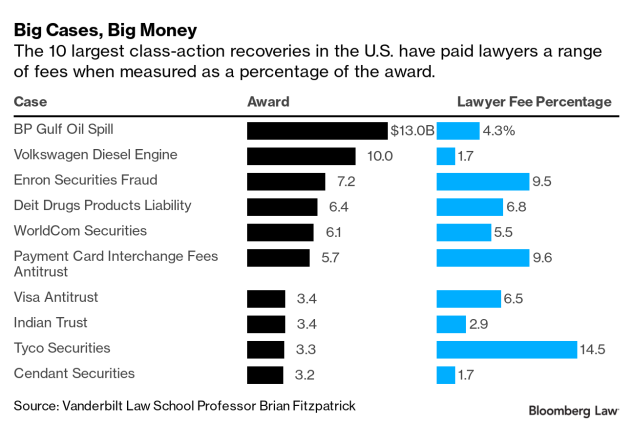
The Paradigm of Billing Time: How Lawyers Are Not Like Investors
by Roy Strom
Earlier this week, I wrote about a $185 million fee request that Quinn Emanuel filed in a class-action for insurers slated to receive $3.7 billion from the federal government over scrapped Obamacare “risk corridor” payments. The Big Law firm’s big ask raised a question about whether lawyers in such cases should get paid based on the time they work or the value they provide.
In the context of Quinn Emanuel’s case, that question has a long and interesting backstory. But there is obviously a lot more to analyze about the question of how lawyers should be compensated.
One of Quinn Emanuel’s experts, Vanderbilt Law School professor Brian Fitzpatrick, has a lot to say about the “time vs. value” question. He advocates for lawyers to be paid based on the value they bring to a case.
Fitzpatrick makes that case in Quinn Emanuel’s fee request by comparing class action lawyers to investors and entrepreneurs. He also points out one key difference between the two groups: the public’s backlash to “windfall” attorneys’ fees.
“When other entrepreneurs and investors succeed in their ventures, no one asks them: How many hours did you spend on this venture? What effective hourly rate did you earn? Should we take some of it away from you because it is ‘too high’?” Fitzpatrick writes.
He continues: “Class action lawyers are investors just like any others; they just invest their time and resources for others (the class members) with no hope of payment unless they achieve some form of success for those others. In my opinion, courts should not bow to the pressure and ask these questions of class counsel, either. Rather, courts should only ask what is best for class counsel’s incentives vis-à-vis class members.”
Fitzpatrick’s lawyers-as-investors analogy is certain to get some attention. It’s easy to laugh at the idea of hedge fund managers being scolded for not spending enough time in the office. But it also is worth asking why we don’t have the same reaction to clients wanting their lawyers holed up in an office. The legal profession, it seems, remains stuck in the paradigm of selling time.
One problem is that it’s difficult to figure out the contours of a truly value-based approach to the work attorneys do.
For instance, how do you measure the value of one individual lawyer over their competitors in a specific case? It’s difficult to do in the real world. There aren’t multiple lawyers litigating the same case in different ways, with differing results to compare.
Class-action lawyers often use theirs or their firm’s credentials as a way to assign value to their work. They point to the cases they have previously won. That’s tricky, too. Aren’t lawyers—and investors— always reminding us that past performance isn’t indicative of future success?
No comments:
Post a Comment